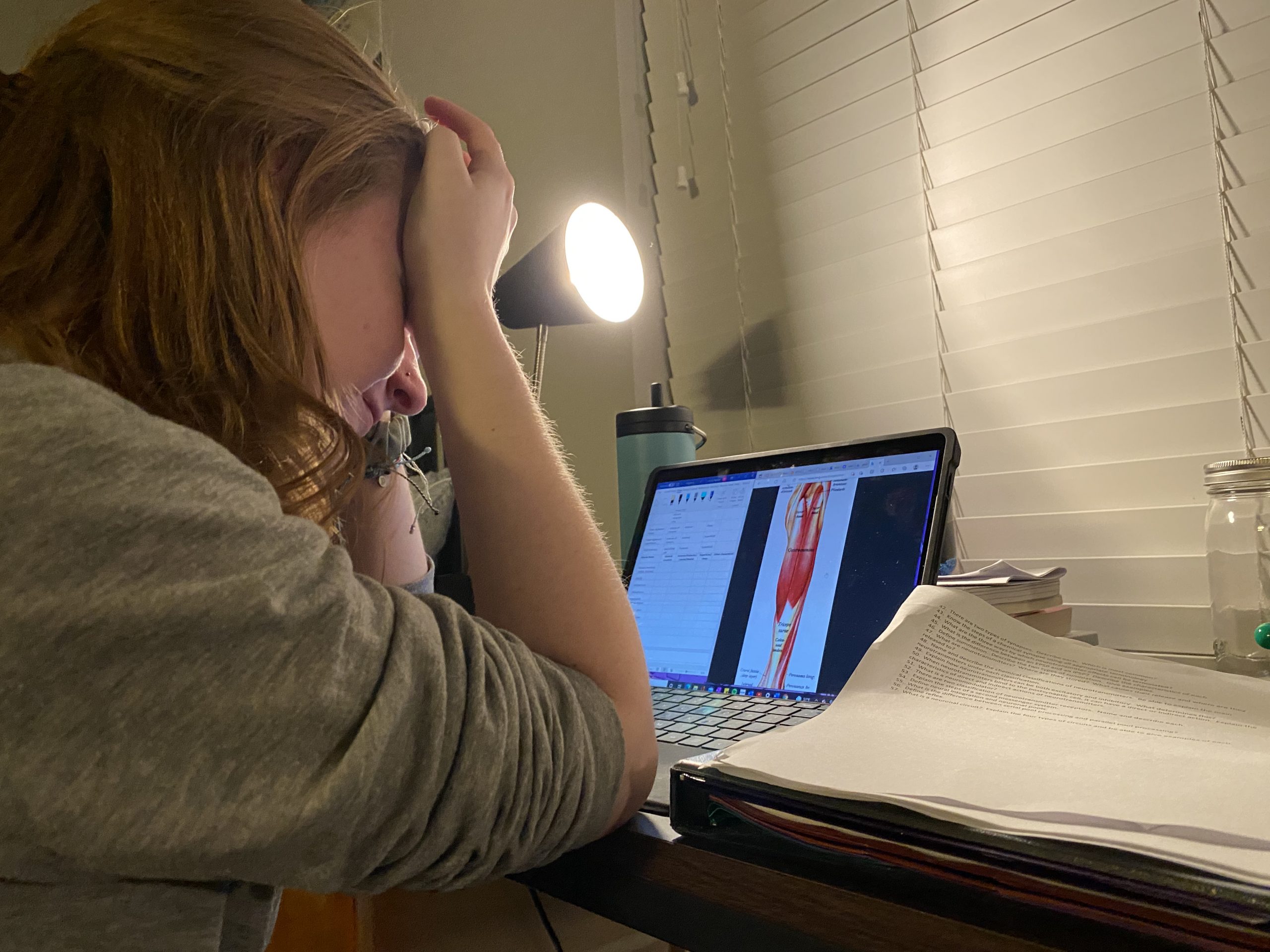College students are all too familiar with the experience of stress. Photo by Claire Runkel.
LEAH OLLIE | STAFF REPORTER | lollie@butler.edu
As the Butler community progresses to the second half of the fall 2021 semester, pressures are rising. With midterms under most students’ belts, the looming threat of finals has appeared on the horizon as well as advising appointments, all while cold and gloomy weather has officially taken over.
It can be extremely easy to slip into the cycle of stress for a number of reasons, which is why the importance of destressing in healthy ways should be made known to students and faculty alike.
National Stress Awareness Day, on Nov. 3, is a sponsored event platformed by the International Stress Management Association to increase public awareness and help people familiarize, discern and minimize stress in their individual lives. Through a week of ISMA events and educational resources, stress management and awareness are brought to an international stage.
Why is this important to Butler University? As made clear by one pillar of BUBeWell core values, both mind and body are a priority.
When students approach, identify and utilize stress in healthy ways, the Butler community will be able to progress with less burnout and happier students. The Counseling and Consultation Services department is a resource any student can take advantage of when they may be struggling with their mental health or stress levels throughout the semester.
Rachel Jensen, a doctoral psychology intern with CCS, defines stress as a combination of an individual and an environment.
“Stress is essentially pressure or strain put on you by your environment, whether that is self-imposed or external,” Jensen said. “That relationship between a person and an environment can present itself in muscle tension, stomach or headaches, racing thoughts, irritable behavior, poor sleep quality, change in appetite, to name a few.”
These effects each weigh heavy on a collegiate lifestyle in which conflicting time commitments,poor sleep habits and multitasking are increasingly common. Students are stressed, more so now than ever. Jensen proposes that a shift in mindset may be the key to utilizing stress for benefit rather than worry.
“It can be helpful to recognize the purpose stress is serving, in that our brains recognize stress for a reason,” Jensen said. “It can help us with motivation, with achievements, with avoiding threats.”
By working with stress rather than against it, what would be nervous energy for some can transform into motivational fuel. Clearing your head by going for a run or talking to a family member over the phone are both methods of unwinding after a stressful day, and healthy ways to expend the energy stress presents to a wandering mind. Harvard Health Publishing also recommends laughter and meditation as ways to destress. Finding the time to complete these activities within the confines of your academic schedule may be a challenge, but your brain and body will thank you for it.
Dr. Shana Markle, Associate Director of Counseling and Consultation Services, advocates for a consistent balance of self-care and productivity that will renew students in their daily routines.
“College is one of the times in life where it is difficult to balance getting work done and engaging in self-care, but hopefully students can make self-care a priority some of the time,” Markle said in a message to The Butler Collegian. “This will replenish their resources to tackle all of the other work they have to do.”
Whether your approach to stress includes engaging in a new hobby or eliminating an unhealthy one, positive steps toward change can impact your general mindset and quiet your mind for ultimate focus.
“In a way, stress is on your team,” Jensen said. “Don’t fight it or eliminate it entirely, but learn to work with it.”




Pingback: My Homepage